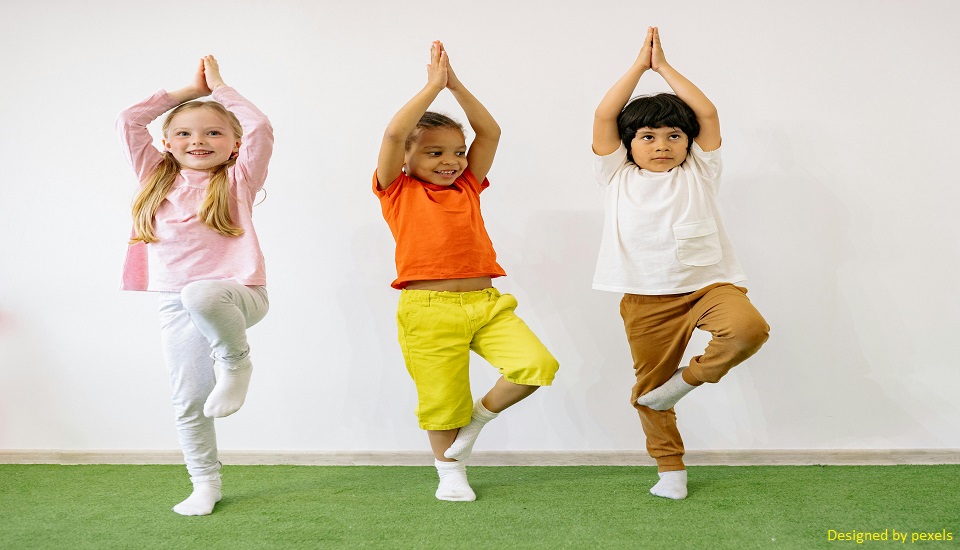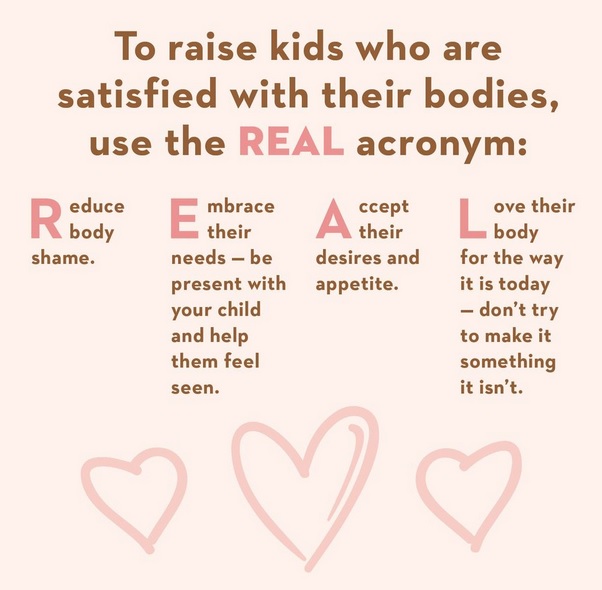6 Practical Ways To Help Kids Be Confident In Your Own Skin
20th June 2024
Research revealed that 80% of the girls in elementary school tried to lose weight with a strict diet.
Children watch a huge amount of media daily. And a lot of the time, how people feel about their bodies is determined by what they see on television, social media, and the internet. Regretfully, a young person shouldn't always take inspiration from those visuals that are constantly flickering across the screen as the ideal representation of reality. So, it's crucial to purposefully teach our children and students how to become more body-positive. These are a few simple tips for fostering body positivity in children to help them value who they really are.
6 Tips For Kids To Be Positive About Their Bodies

Source: goodhousekeeping.com
Here are some ways to encourage positive attitudes around body image and food in children:
1. Practice Body Positivity Yourself
It is no surprise that youngsters pick up knowledge from observing the people in their lives. Additionally, a lot of adults have terrible body image and self-talk. If parents and teachers often criticize their appearances and are very harsh on themselves, children are bound to learn from them.
However, the children present hear these critical remarks as well, and they could start to question themselves or grow similarly critical of their growing bodies. So, above all, be careful with your words. Additionally, consider making a compliment regarding your physique! It will improve your confidence a little bit and teach youngsters about body positivity!
Do you follow us on Social Media? If not, then you’re missing out on a lot of informative content. We regularly share upgraded educational content, tips, feedback, and more. Check us out by clicking the profiles here - Facebook / Twitter / LinkedIn / Pinterest / Instagram / YouTube
2. Teach Children About The Entire Package
Giving kids compliments on how they look is a terrific method to help them develop a positive self-image. Praise their generosity, arithmetic prowess, and other unique character attributes that make your child or pupil stand out should also be mentioned.
The important thing to remember is that kids are more than just their physical selves. Help them know that they come as a whole set!
3. Listen And Address Concerns
If you notice someone engaging in bad body language, think about striking up a conversation to address the matter directly. Gently let your child know that you've heard the negative and that you're there to chat if they need someone to listen. It is simpler for youngsters to open up about how they're feeling or if they have questions about their bodies when there is open communication.
Keeping the discussion continuing may be achieved by asking questions. Your child may feel better about the negativity if you simply listen to them sometimes. In other instances, you might have to point them in the direction of something admirable about themselves.
4. Watch Your Terminology
One excellent approach to teaching children about body acceptance is to encourage a healthy lifestyle. However, if incorrect terminology is employed, kids cannot understand what is meant by ‘healthy.’
For instance, there may be negative connotations associated with diet or weight. Use the term ‘healthy’ in its place. Avoid focusing on derogatory terms like ‘fat.’ Use phrases like ‘happy’ and ‘healthy’ instead.
5. Discuss Social Media
A lot of children, particularly tweens and adolescents, spend a lot of time on social media, which is full of photos that have been digitally manipulated. Don't forget to mention how not everything you see online is accurate. People can augment, smooth, or diminish their figures through image editing.
Help your child understand that many of the bodies in the media have been photoshopped and manipulated and encourage them to think critically about the harmful messages they encounter in the media.
6. Ask For Help
It is advised to get therapy if your kids are having issues with their body image so that they may have more genuine lives. Parents and counselors can learn how to reframe their ideas about food and their bodies by using cognitive behavioral therapy (CBT).
Teachers and parents may learn to detach their self-worth from their looks by focusing on the aspects of their bodies that they appreciate. You can also learn about the problematic patterns or ‘blueprints’ you may have unintentionally or intentionally learned as a child through therapy, support groups, and self-help literature.
Help Build Positive Lives
Being a teacher counselor is a lot of work, and if you don't feel good about your body, it can be difficult to set an example for others to follow. Since you will be working with all age groups of kids, a Post Graduate Diploma in Counselling for Teachers allows you to better understand the needs of the kids and offer help accordingly. Seek therapy, books, or support groups to discover constructive methods to talk to yourself and your children about food and body image.
We believe education should be accessible for everyone. That’s why we don’t charge for our blogs. Find the right course that will help you in your career with us, contact us at - 1800–212–6400. You can mail us at act@asiancollegeofteachers.com.
Written By : Sanjana